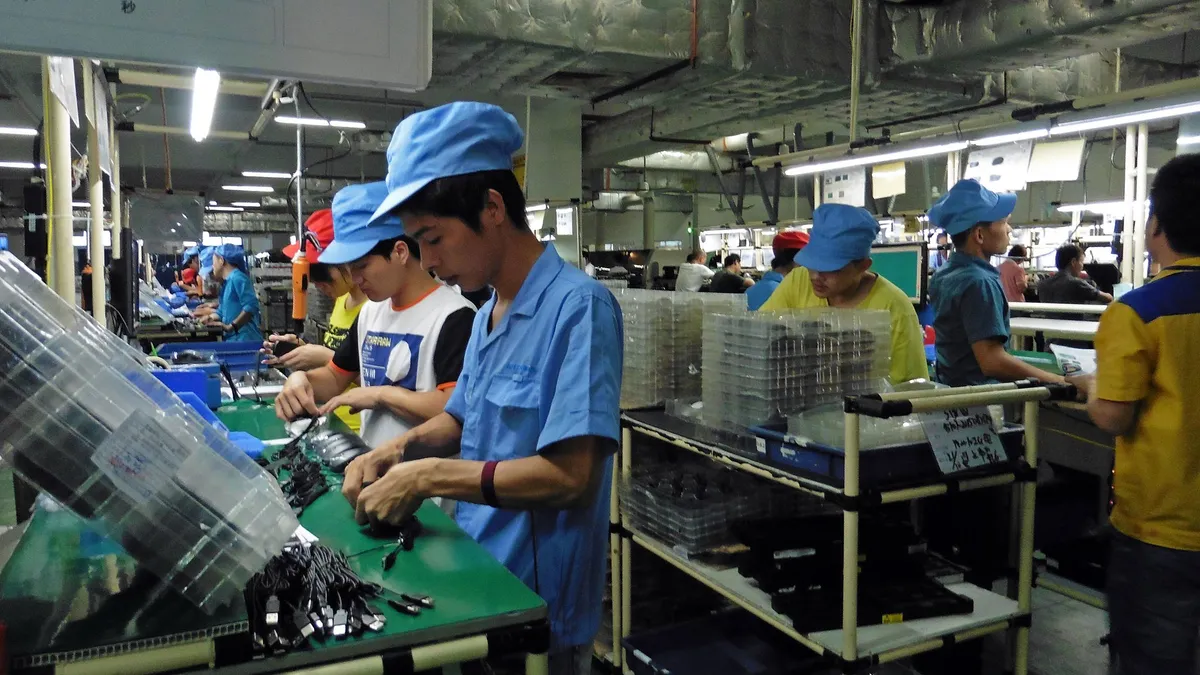Dive Brief:
- Chinese manufacturing indices reached a low in February not seen since the great recession, according to the Caixin China General Manufacturing Purchasing Manager's Index (PMI) released Monday. The drop is the result of manufacturing operations staying closed after the Lunar New Year break to stem the spread of COVID-19.
- February's PMI of 40.3 was the lowest since the survey began in 2004. The index is "a composite indicator designed to provide a single-figure snapshot of operating conditions in the manufacturing economy." A value below 50 indicates contraction while above 50 indicates growth.
- China's official government index fell to 35.7 in February from 60 in January — the lowest since January 2005 and also lower than November 2008 levels.
Dive Insight:
The PMI may resemble a recession scenario on the surface, but more granular indicators paint a more accurate picture of the unique stress the coronavirus outbreak is putting on supply chains.
Though demand weakened in February, the Caixin index showed the new export orders were nowhere near the lows recorded in 2008. And the Backlogs of Work Index showed factories will have much to do when they regain capacity. Optimism that manufacturing will rise over the balance of the year reached a five-year high.
"The economy will be able to see a significant rebound when the epidemic is gradually contained and companies accelerate the resumption of business amid more proactive fiscal and monetary policies," said Zhengsheng Zhong, Chairman and Chief Economist at CEBM Group in a statement.
For now, factory shutdowns or slowdowns in China have rippled through the region. Some companies moved production away from China and into Vietnam as a result of the trade war, but those operations are now citing sourcing struggles as a result of the COVID-19 outbreak, according to the South China Morning Post.
Companies from Apple to Toyota have experienced production delays as a result of staffing issues at factories in China.
"Difficulties in sourcing inputs contributed to the steepest decline in inventories of purchased items for just over 11 years," the PMI release reads.
Some regions will bounce back faster than others as work and travel restrictions in some Chinese provinces persist. Hubei Province where the outbreak began will not resume production before Mach 11.
A survey of Chinese businesses by the Cheung Kong Graduate School of Business in Beijing published Feb. 20, found by the end of February, 11% of respondents expected to be at 80% to 100% operational capacity, 29% expected to be operating at 40% to 60% and 32% expected less than 40% capacity.













